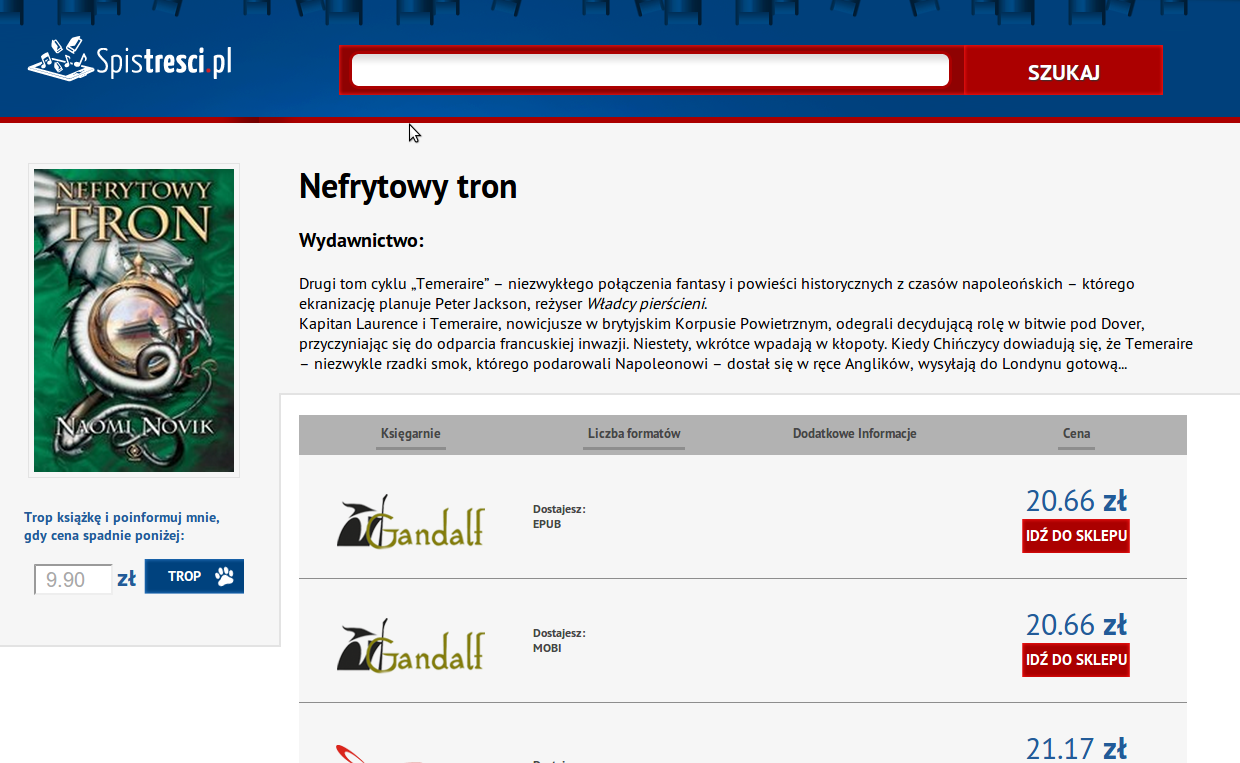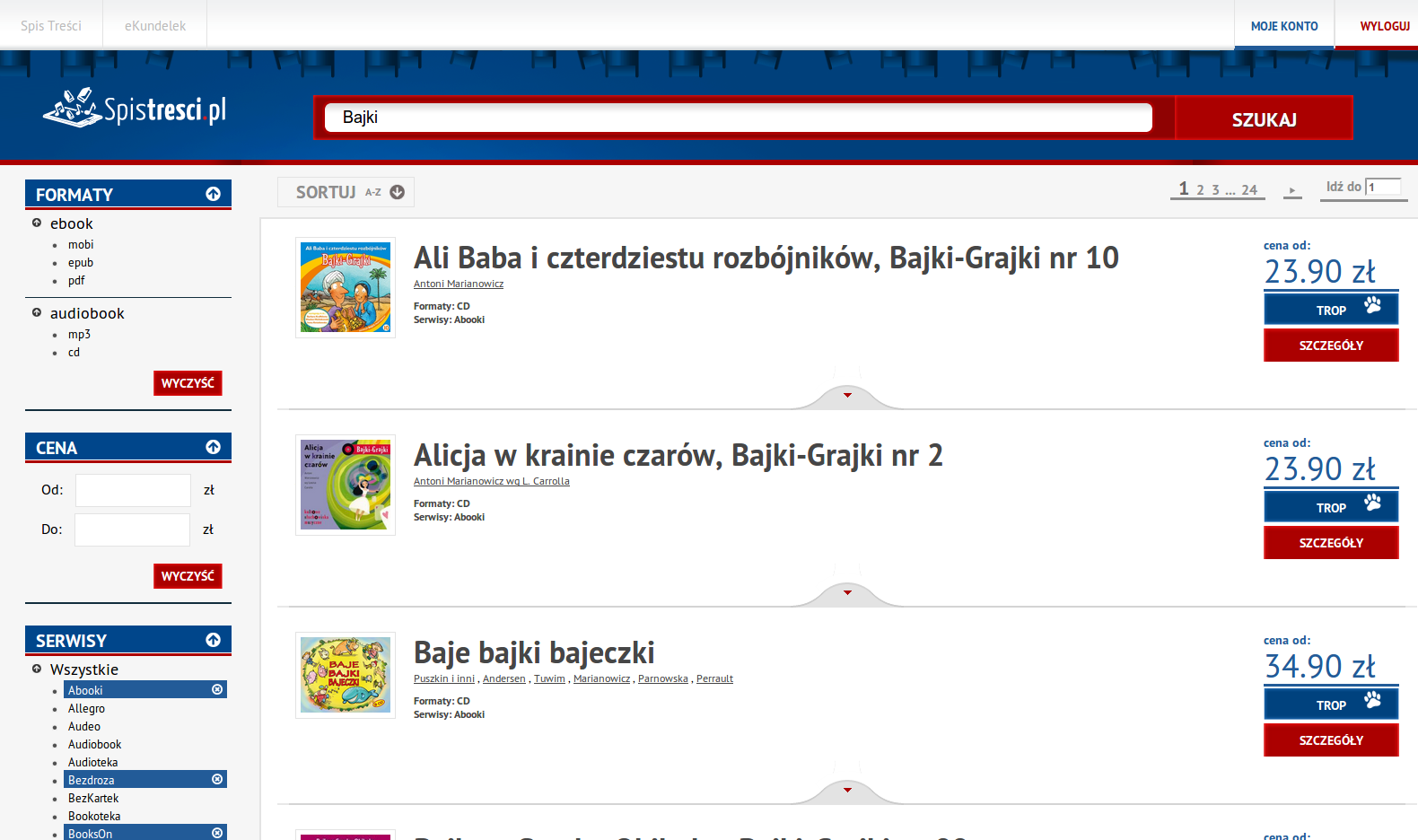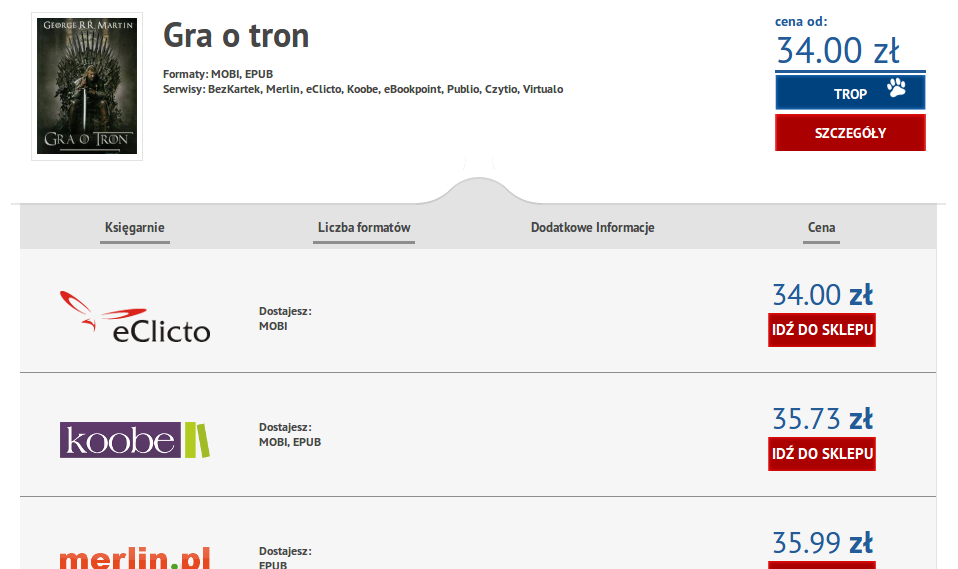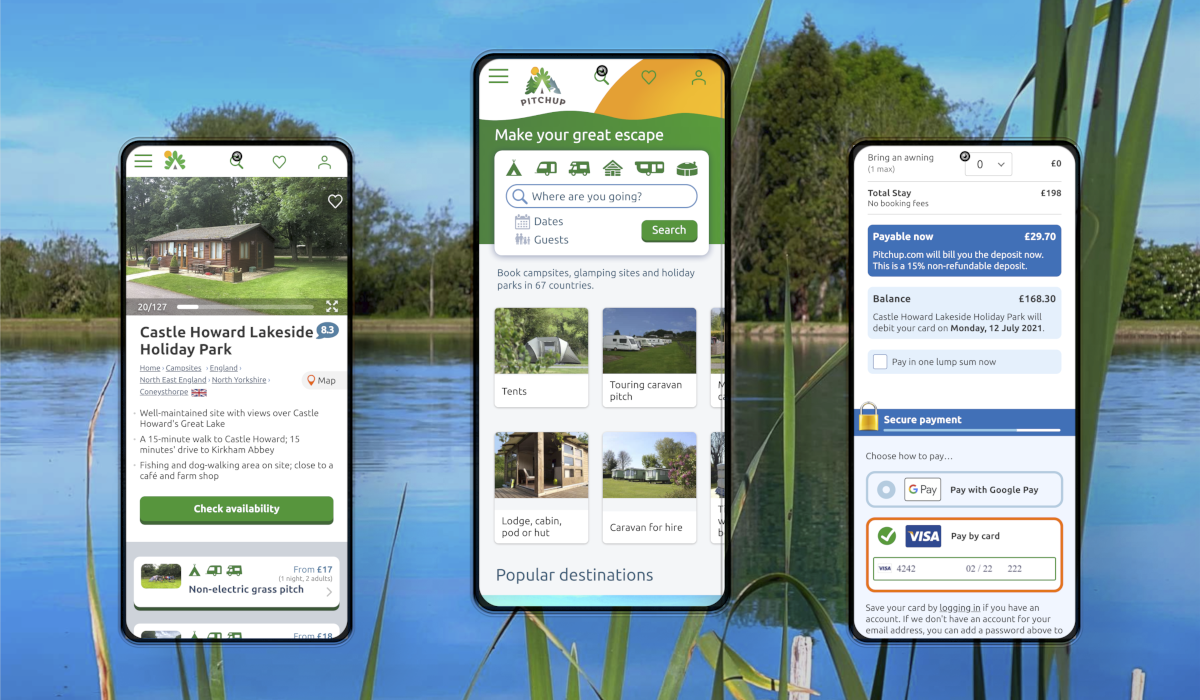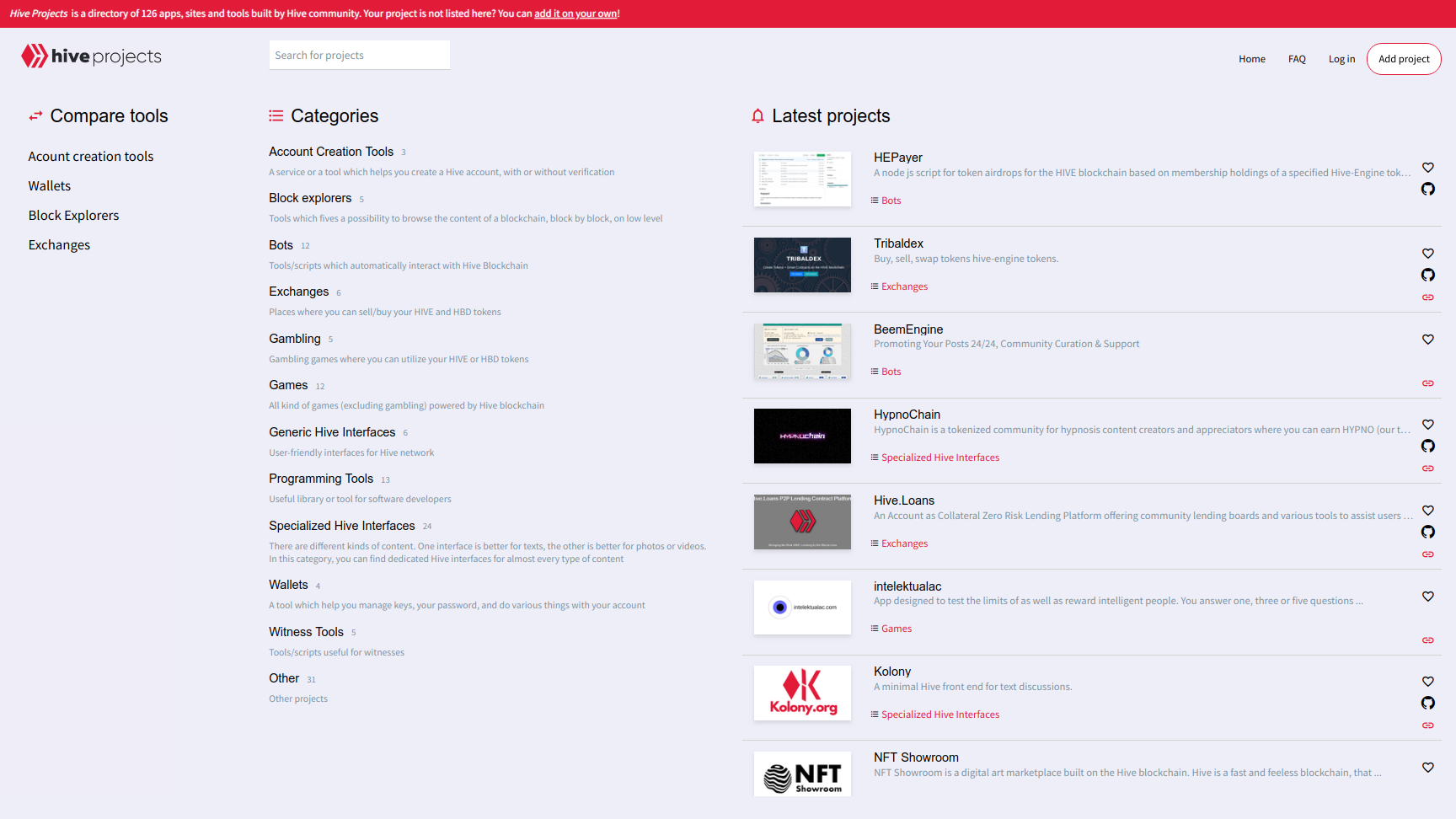SpisTresci.pl


Project Background
In 2012, as a hobby, I started a blog about Amazon's Kindle eReaders. Surprisingly, my blog started to get a lot of views. I've noticed that my readers were frequently asking what the best places to buy ebooks are. The answer to this question was not apparent because the prices of books are changing all the time, and not every bookstore had ebooks available in a proper format. Then I've decided to start working on SpisTresci.pl, which goal was to help with that.
My Role in This Project & Our Team
I was a founder, a lead developer, and a CEO of this project. My college Piotr Zawiślak from Opera Software, become a co-founder. After the start of the project, we realized that establishing business relationships with proper partners will require much more effort. My wife Magdalena joined our team to help us with that. During the next few months, Patryk and Mateusz joined us.

Till This Point, I Was Not a Web Developer
Before I started working on this project, I've had ~4,5 years of commercial experience programming in C/C++ & Java for Opera Software. But almost no experience with web technologies.
We decided to choose Python and Django to build the backend and jQuery to build the frontend. All those things were new for me, so I was learning as I was going, developing new things. Even styling with CSS was a challenge for me at some point.
It took our team much longer than I initially anticipated. Nevertheless, I believe, thanks to a clear goal, I've personally accelerated my learning speed enormously.
Books Matching
Every price comparison website should group the same products from different shops under one position. I thought this should be trivial because books have ISBN codes. I was wrong. Most traditional books have ISBN codes, but not most eBooks & Audiobooks. Maybe 20% of them had one (in 2013).
I've decided to write a heuristic algorithm responsible for calculating whether two particular books should be grouped.
From the very beginning, the problem was a massive database of books from ~50 bookstores. I had a problem to came up with an algorithm accurate enough and fast at the same time. I could make it quick, but then I was getting many false positive and false negative matches. I've ended up coding something acceptable… but now I know that was a completely wrong approach.
What I should do at that point, and what competition was doing, I should match all those books semi-manually, with the help of some custom-made tool designed for that. That actually would be much cheaper, considering I could delegate that to someone else (less expensive to hire than a programmer).
Nowadays, having already manually curated a large set of adequately matched books, I would probably be tempted to try to create a small neural network to deal with this problem. Ironically, even right now, it would probably be cheaper to this semi-manual. That was a big lesson for me - not everything that I had an ambition to code myself was a good idea from a business perspective.
One of the biggest traps for smart engineers is optimizing a thing that shouldn't exist.Elon Musk
Establishing Business Relationships with ~50 Online Bookstores
The most challenging partnership to establish was the first one. It took a lot of time and effort to convince the first bookstore to give us access to their database. Nobody knew us at the time, and our lack of experience with the business world was not helping at all.
But after getting the first 2-3 partners, things were getting more accessible, mainly because we were able to say who already we have on board.
After some time, getting new deals was not a huge problem. However, negotiating the terms of all those deals required at least one person to focus on that solely. My wife did a fantastic job in this area, to the point she was able to get us a new deal quicker than we were able to integrate the last bookstore with our system.
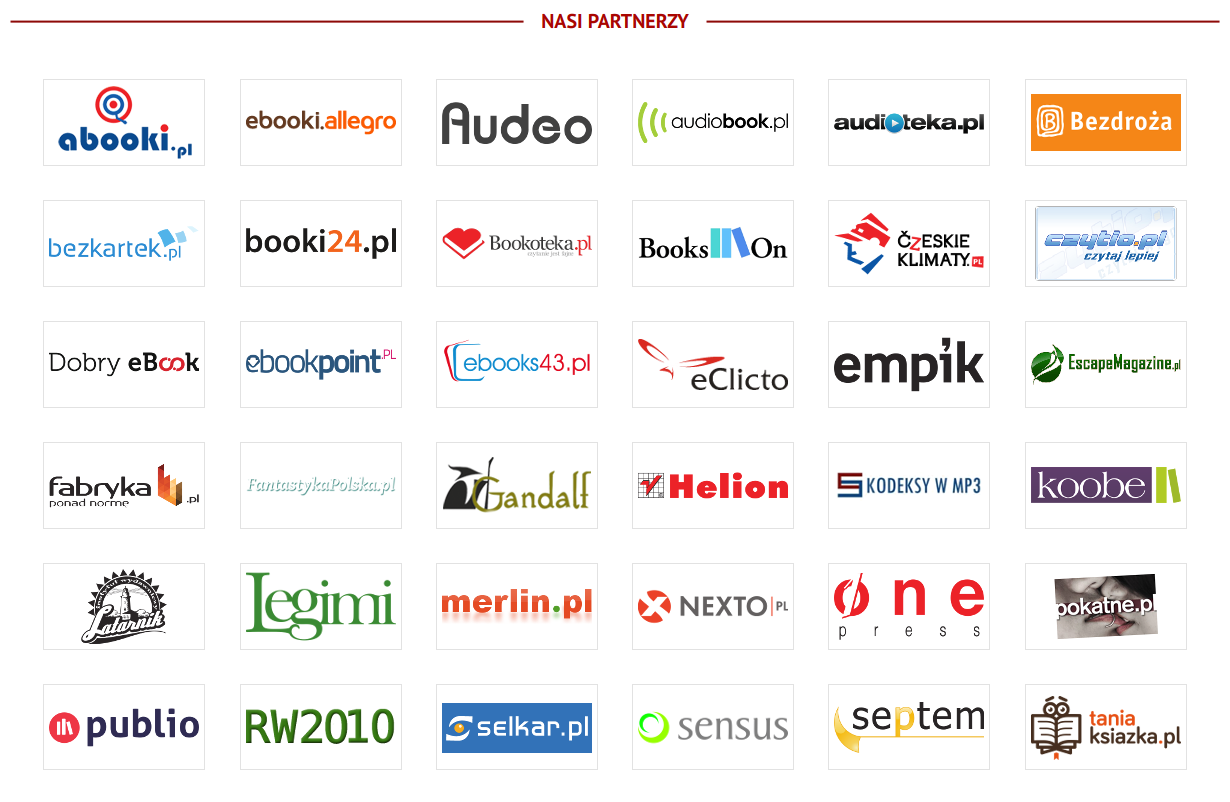
Now I know that this actually should be a red flag for us, that we overdid it.
I decided that we should start with the most bookstores possible because that supposed to be our differentiator from the already existing competition. Even today, eight years later, no service in Poland has integrated more online bookstores than we did in 2013.
It was a wrong decision. We should follow the Pareto principle and focus on ~20% bookstores, which would give us around 80% of offers available on the Polish market, but at the same time greatly simplified the development of the whole product.
Integration of ~50 different online bookstores
We needed to design and create a mechanism to import book prices from those bookstores, which in most cases had different APIs.
The beginning of this again was tough because we were not aware of the APIs of bookstores, with which we have not had a deal yet. It is challenging to implement a generic solution when you have 1 or 2 examples. As we were getting access to more and more APIs, we noticed more similarities, which allowed us to create a more generalized mechanism. That's said, we have prepared a tool, which within 1-2 hours allowed us to configure and integrate a new small bookstore.
We coded generic "connectors" for many formats/protocols like XML, JSON, OAI, MARC21, which later we could extend to provide a final implementation of connector for a specific bookstore.
Fortunately, most bookstores were able to give us access to their daily snapshot in XML format. The format of those particular files varied dramatically. However, thanks to the power of XPath, we were able to develop a pretty robust mechanism, which would extract needed data and put everything in our unified database.
Biggest Lessons Learned
Not Understanding What MVP Truly Means
About this very topic, I've written a separate elaborate article, which I recommend reading. Steem community appreciated and reworded it with a prize of $1,827.89.
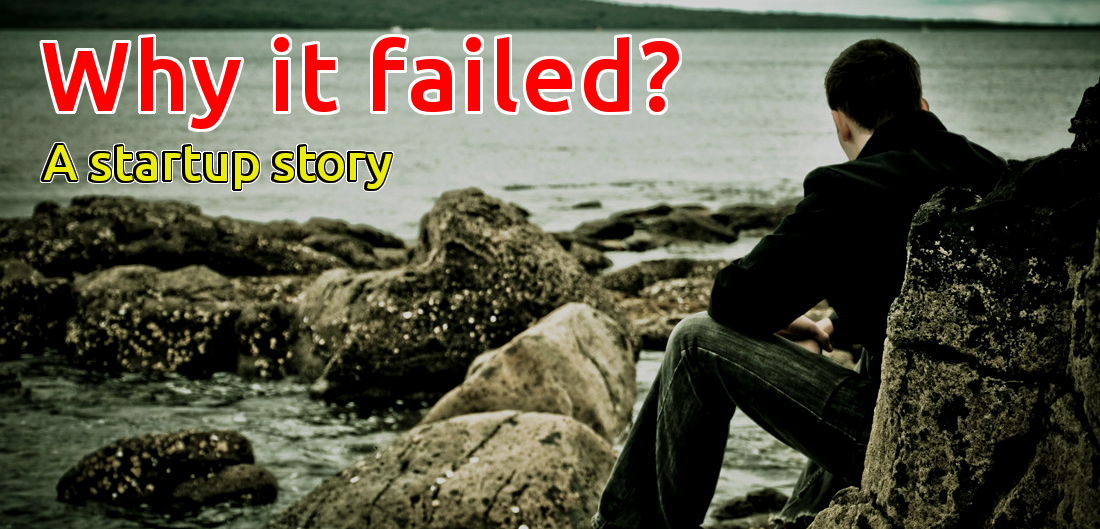
How I bankrupt my first startup by not understanding the definition of MVP - Minimum Viable Product
Solving a Problem, Which Could Be Easily and Cheaply Outsourced
Because I was an ambitious developer, I've wanted to design a solution for the matching problem described earlier. It was a mistake. We should recognize earlier that this will be too hard, and we should approach this differently and do it semi-manually.
Not Looking for Investors Early Enough
I had some small capital, which I believed should be enough to prepare an MVP. As it turned out, it wasn't enough, and additional capital would help a lot. But back then, I didn't understand the more important thing: finding investors is not just about money. Often it is more about getting mentors, know-how, and advice from more experienced business-oriented people. Good investors would probably help us focus more on essential metrics from the beginning, allowing us to avoid bankruptcy.
Failing Is Still Better Than Not Trying
Despite a failure of the whole thing, I still believe it was worth it. This startup put me on the fast track of learning. Often people are afraid of failing just because they don't want to lose. I was amazed when I understood how valuable knowledge and experience derived from failure could be. It can outweigh by order of magnitude or more a cost of a particular failure.
Summary
SpisTresci.pl officially was a failure. We run out of funds before we were able to generate profit. That's said, I still think it was one of the best experiences of my life. Thanks to that, I know at least one way how not to run a startup, and I know that's worth something.
Krzysztof is a really smart guy. He learns very fast, always finds time to help others. In his work, he pays a lot of attention to details. I really enjoyed to work with him.
